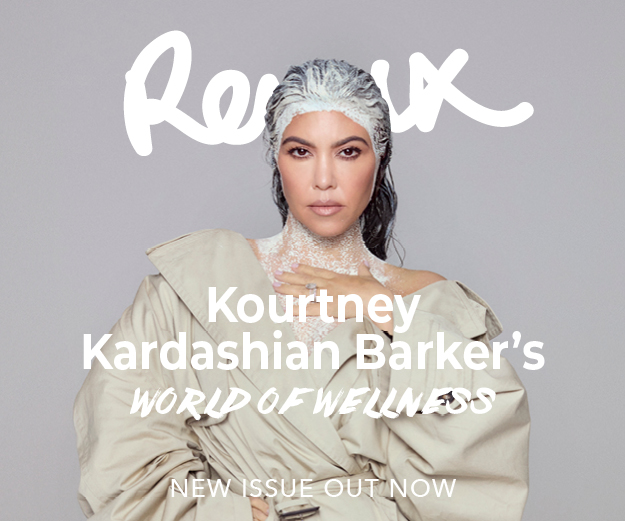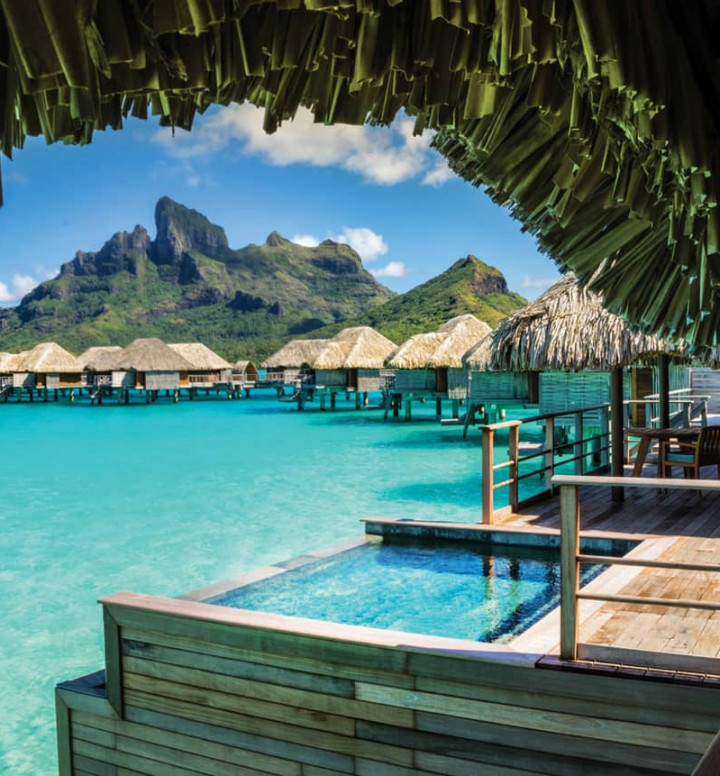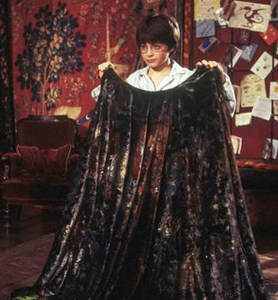A controversial idol - In conversation with Lily-Rose Depp
If you’ve watched ‘The Idol’, you won’t be surprised to hear it garnered a lot of criticism around its controversial themes and sex scenes. Abel Tesfaye, aka ‘The Weeknd’s character Tedros was undoubtedly creepy (intentionally, of course), but Lily-Rose Depp’s character, aspiring pop idol Joceyln, was about as complex and controversial as it comes for a young woman’s breakout role. The French-American actress (and daughter of acting legend Johnny Depp) talks here about the creation of her emotional character Jocelyn, taking her clothes off for the cameras and more.
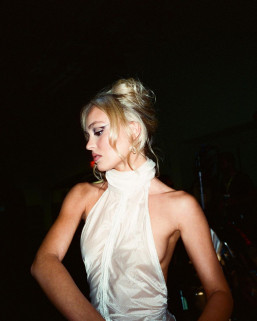
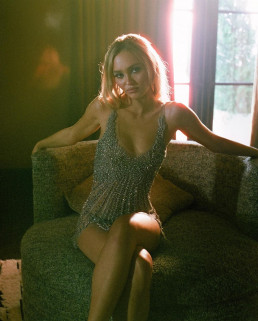
Created by Euphoria creator Sam Levinson, and The Weeknd and Reza Fahim. The show focuses on Jocelyn [Depp], an aspiring pop idol who, after having a nervous breakdown that causes her last tour to be cancelled, resolves to reclaim her title as the sexiest pop star in America. Joceyln dives into a complex relationship with Tedros - played by Abel ‘The Weeknd’ Tesfaye - a self-help guru and the head of a contemporary cult. Suzanna Son, Troye Sivan, Jane Adams and Hank Azaria also star.
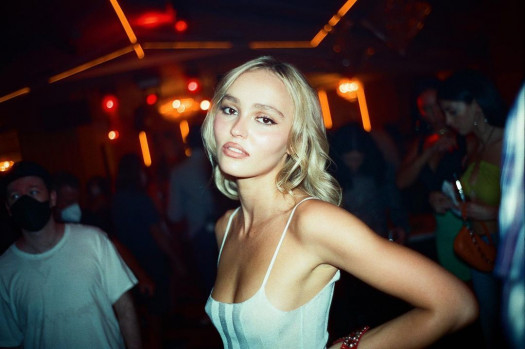
“Every piece of nudity is international" - Lily-Rose Depp
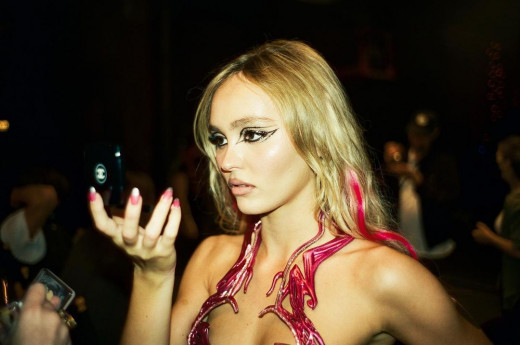
Lily-Rose, you must be pleased with the great reaction 'The Idol' got at its premiere?
This project and these people mean everything to me and we really have become like a family. And so to be here altogether celebrating something that means so much to all of us just couldn’t have been more special.
Your character is struggling navigating the pitfalls of fame, how do you navigate the fame game?
You know I think that it’s just about the people that you surround yourself with. And that’s something that, you know, we see my character actively dealing with in the show, is struggling with the people that she is keeping around her and wondering if they are telling her the truth, if they have her best intentions at heart. And wondering what they really want for her and what they want for themselves out of it. We see her struggling with that kind of dynamic and I think that that’s something that happens in life as well and it’s all about surrounding yourself with good people and that’s why I’m very happy to be here surrounded by all these wonderful people.
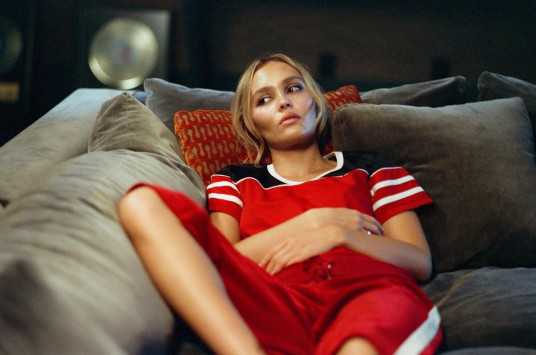
You play Jocelyn, an aspiring pop star. How did you manage to keep that balance between what we imagine a pop star to be like and the reality that director Same Levinson is presenting here - the desperation etc.?
I think something that’s interesting about pop stars or just celebrities in general, people that are very watched and looked at all the time and we imagine that we know way more than we actually do. I think that something that was really interesting about exploring a character of that kind was thinking about what is going on inside her head, what is going on inside the psyche of somebody who is watched but not really seen. And what does her time look like when she’s alone and what does it look like when she unravels and when she does that privately or publicly – what is the effect of that kind of lifestyle? Or that kind of feeling of being surrounded constantly even if you’re in your private spaces. So yeah, I think something that was interesting about the character was diving into the idea of what is underneath the surface that we grow so attached to and imagine that we know everything under that surface, what is lying underneath? Because there’s so much lying underneath for everybody.
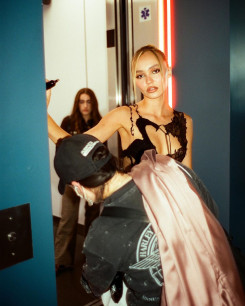
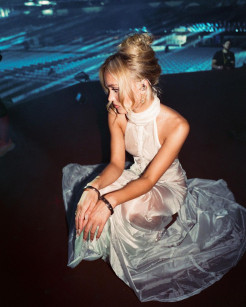
There is quite a lot of nudity in the series. Can you tell us how you felt about that?
Something about Jocelyn is just that she is just a born and bred performer and I think that that extends to every aspect of her life, not just her professional life. I think that the way that she dresses, for example, is her trying to tell you something all the time, or say something to the people that she’s around or express herself in some kind of way. And I also think that the occasional bareness of the character physically mirrors the bareness that we get to see emotionally in her.
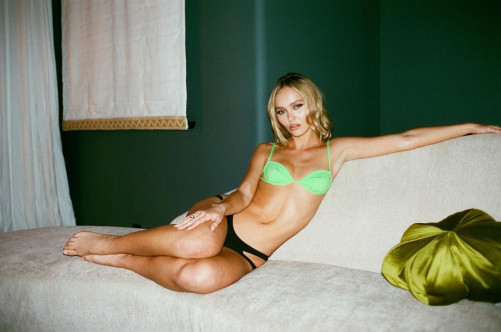
And that was something that I felt was really important to the character. And when it comes to all of that stuff, I’ve never felt more involved in those kinds of conversations, across the board, whether it was with Sam and Abel and our whole team or our amazing costume designer or hair and make-up and everything. I felt like I was really given the privilege of being really involved in the creation of this character and the ins and outs of how she expresses herself from the inside out and also the outside inside in. And yeah, I think it says a lot about the character that’s important.
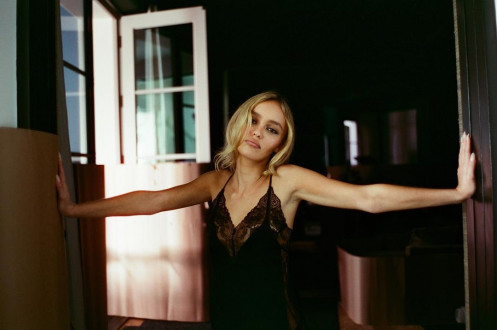
You seem to have no fear when it comes to nudity on camera? Was it all you or did you have a body double at times?
No, it’s all me! And I love doing that kind of work and I don’t think there’s anything wrong with that. I also think that it really speaks to who the character is and who she wants to tell you that she is. You know, she’s a performer through and through even when she’s alone and just looking in the mirror. And so every outfit and every interaction and every piece of nudity and all those things are very intentional and were really important to me. And I also just, you know, I don’t think there’s anything wrong with enjoying that kind of work.
Your co-star Hank Azaria said sometimes he wanted to throw a blanket over you or his jacket.
[laughs] He’s very sweet. I loved working with Hank so much. He’s the best.
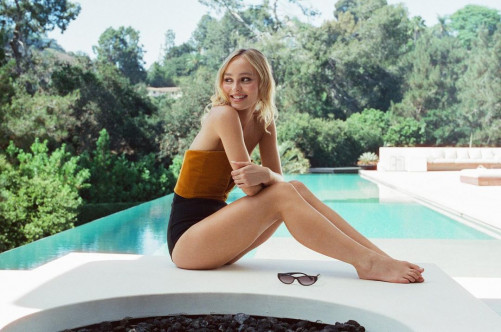
Do you think that your parents, your dad, would react the same way?
[laughs] Um, you know, I don’t think any parent wants their child to be cold so I’m sure that they would want a blanket on me too.
Did you have time to hang out with your dad in Cannes?
We didn’t overlap actually, unfortunately.
Was it a bit of a relief that neither of your parents were at the premiere?
You know, I was so happy to be at the premiere with the team. It feels like such a long time coming and we’ve all grown so close and have really made this little ‘Idol’ family together. So it was just really, really special being there with them and walking up the steps all together. It was very surreal and emotional.
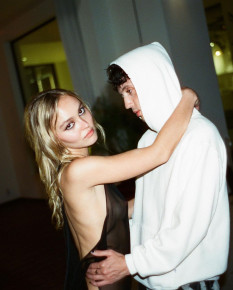
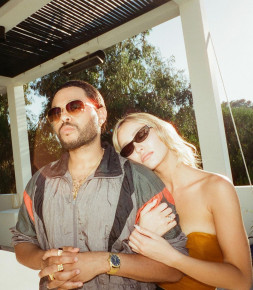
How far did you push yourself during the breakdown scenes and how did it make you feel afterwards?
Maybe this makes me a little twisted but I feel really good after doing scenes like that actually because, I don’t know, there’s something that feels very therapeutic about it to me and maybe that’s why I like doing this job or something. Maybe there’s something wrong with me! But um, I don’t know, it feels very cathartic to me and I feel very drained of anything that I may need to let go of. Obviously when you go that far emotionally, you have to find it within yourself, it has to come from someplace, you know, real. Someplace inside of you. Even if you’re performing a scene that is completely fictionalized and you’ve never actually gone through any of that stuff, you have to find it within yourself. But I find that kind of work to be really healing, actually.
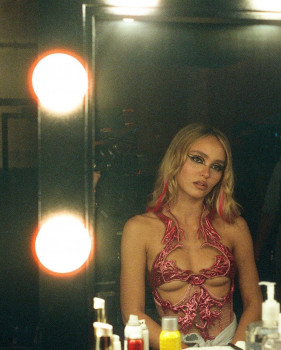
There is a reference to Britney Spears on the show, how much was Jocelyn influenced by her?
We’re not telling anybody else’s story. There are so many incredible pop stars of our day and of course, I admire and have so much respect for them, especially after trying to dive into the psyche of somebody who lives a lifestyle of somebody who I personally haven’t lived and everything. But I think something that we also wanted to do with the character is make her feel simultaneously like a pop star of our time but also like she existed in her own plain, in a way. And we talked about a lot of other influences, influences that are not, you know, pop stars. We talked about Sharon Stone in ‘Basic Instinct’, we talked about Gene Tierney, we talked about Jeanne Moreau – all of these other incredible, powerful women that had a lot of influence on Jocelyn as well.
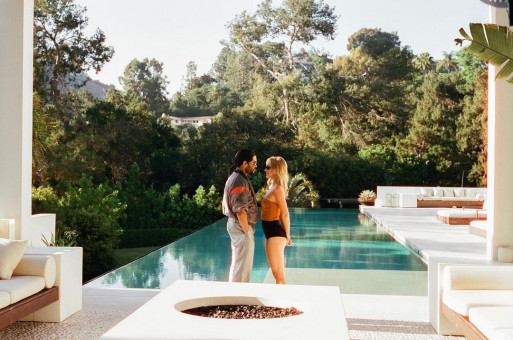
'Basic Instinct' was seen as very shocking at the time it was released. Growing up, which movies shocked you with their explicitness or otherwise?
You know, I don’t scare easily [laughs]. I’m not shocked by much, I guess. But I love ‘Basic Instinct’ and I love Sharon Stone so much and she was a huge influence for me for this character. That’s why I dyed my hair light actually, so that I could pay a little homage to her in ‘Basic Instinct’.
Would you say the entertainment business today is more is more sex, drugs and control rather than rock'n'roll?
You know, I think that we’re telling a very particular story, a fictionalised story as well. And so yeah, I think that control is definitely a theme that’s explored in ‘The Idol’ and it’s interesting to see the ways in which that affects my character. And I’m also excited for you to see how it continues to affect her and how the story kind of evolves.
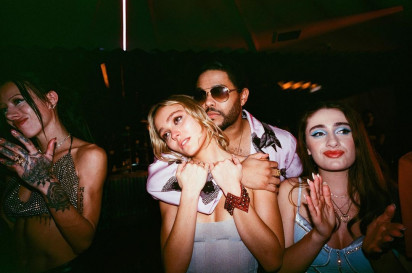
Can you relate to Jocelyn being over-controlled?
I mean, I think that you have to find ways to relate to your character in some way. I mean, like it was so interesting getting to dive into her emotionally because at the same time, you know, she’s somebody who lives a life that I have not lived, you know, at all, being a pop star and being a child performer and everything. These are things that I have not experienced. And yet what she’s going through emotionally is so universal, this feeling of not knowing if you can trust the people around you and feeling like you want to be taken seriously as an artist and you don’t know if you’re going about that the wrong way or the right way. And having doubts about yourself and feeling insecure or feeling unsure about things. I think these are things that everybody can relate to - not just people in the entertainment industry.
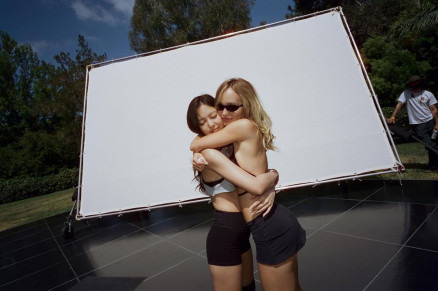
But how do you protect then your autonomy and your freedom and the space that you need for yourself?
I mean, that’s something that I luckily have always felt really comfortable doing. And something that was really cool about this character is that I was really involved in the creation of who she was from the ground up. And so all of the decisions that were made about how she was going to be portrayed in the show and how we were going to introduce her to the world and everything, I was really privileged to be able to be a part of those conversations and really kind of create her.
In helping create her, what did you share about your personal experiences in LA and being in the public eye?
You know, I think that all of us have experienced this world in different ways. You know, Sam [Levinson] as a director and Abel [The Weeknd] as a musician and I’m an actress, and we’ve all had different upbringings and all of that. And so I think that the show is really a product of, you know, obviously things that we’ve all experienced and things that we’ve all seen and worlds that we’ve all been a part of. But also, it’s fictionalised, so we got to play with some really fun stuff in there as well.
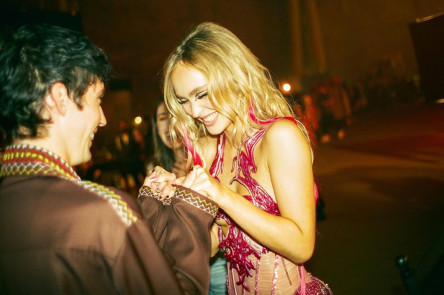
Finally, there have been stories about chaos and toxicity on set - was that your experience?
I just want to say that of course it’s always a little sad and disheartening to see mean, false things said about somebody that you really care about and you know is not like that. And yeah, it wasn’t reflective at all of my experience shooting the show.


